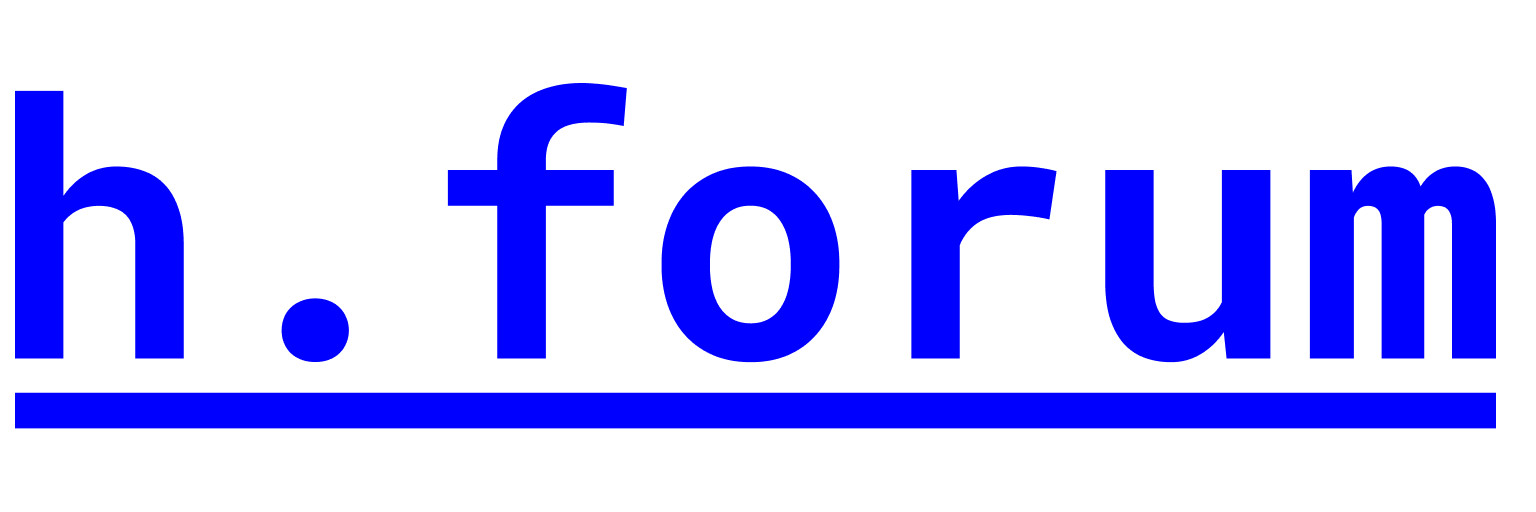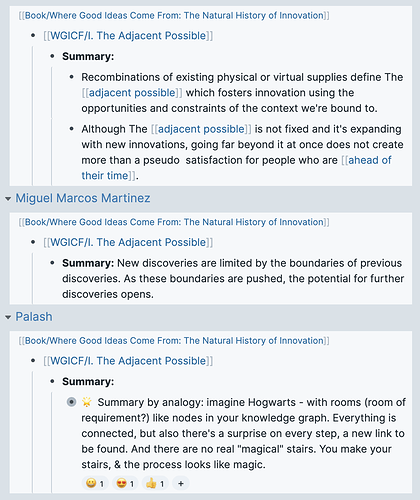Hi! I’m the facilitator of the course Antifragile Writing with Roam Research.
This is an interesting topic. It looks that Roam is becoming an empire that conquers every possible territory. I would like to know more about your experience with the book club.
We’re experimenting with using Roam along with the forum for documentation, discussion, and exercises in the course. I still have some doubts about it but we’ll see.
There are some assumptions in using Roam for more that it was designed for, at least in this moment of its development.
First, thinking that everybody writes. Roam needs users to write down ideas and discussions in order to work. Even in courses about writing, the major difficulty is to encourage students to write and share.
I see designers or more visual persons trying to use Figma as a tool for teaching, presentations, mind mapping, brainstorming. They don’t think in Roam but in Figma for obvious reasons.
If Roam can be used as a learning platform, it can be used just for a specific persona. A writing-driven persona.
The article mentions Montessori and Wikipedia as inspiration. Montessori is a very strong presence-based system. Adaptations have been done, but the truth is that the Montessori system is far from ideal for distance learning. And is for kids.
Wikipedia is a very bad paradigm. If we consider Wikipedia as a learning platform, the proportion of writers/experts/editors versus readers/learners is huge. I read an interesting article about how Wikipedia came out in the best moment it could come: before social networks. Wikipedia would not be possible in the Facebook era. Can you imagine anti-vaxxers or astrologers maintaining Wikipedia entries as if they were Facebook groups?
There are a lot of attempts to use Roam for things it wasn’t designed for. I have read about Roam for publishing interactive books, blogs, ebooks… There are apps for that!
As in the example above, Figma is a tool that has been used for collaborative meetings, presentations, mind mapping… Good, but everybody needs to know how to use Figma before the meeting or event. Otherwise, you need to spend time teaching Figma before using Figma for other proposes.
Roam Help—the official help docs written on Roam—is a nightmare. The best example of not using an app for something that it wasn’t designed for.
Can we use Roam as a learning platform? Yes. Can we use Twitter, Facebook, TikTok, as learning platforms? Yes. Indeed some are using them for that. Are they ideal for that? I don’t think so.
Another assumption is that everybody has an internet connection and a desktop/laptop computer. Roam doesn’t work well on smartphones or even on tablets.
And besides the obvious—a high-priced app, not open source, database proprietary—we assume that the next generation of learning platforms need to be very different from what we are using today. Or that the users/learners need something very different from what they are used to. I don’t think so.
I think the most important parts of a course are the content and the enacted experience. That’s the reason I like hyperlink.academy. A simple platform with a strong focus on the content. And I think that the originality and creativity for a new era of online learning must be in the content. The content drives the experience. A well-written traditional book can enact a learning experience without the necessity to have interactive tools or resources. After you read a book, sharing your experience with others is simple. You can have a talk, share highlights, comments, reviews… but the important thing is to have good content.
Roam Research is a great app to generate content and ideas to design learning experiences, that’s for sure. I think that is its potential.
But, I may be wrong. I want to be in a course with a multiplayer use of Roam and see what happens.


